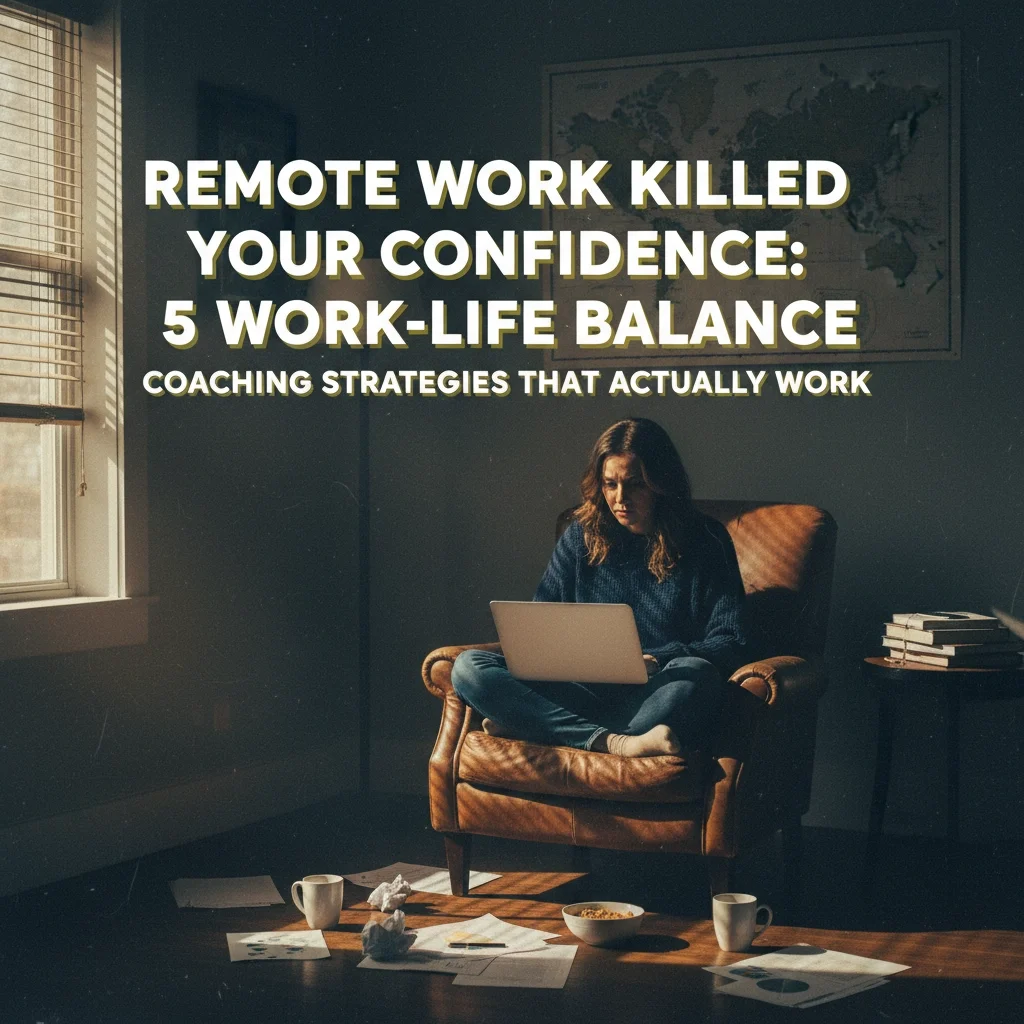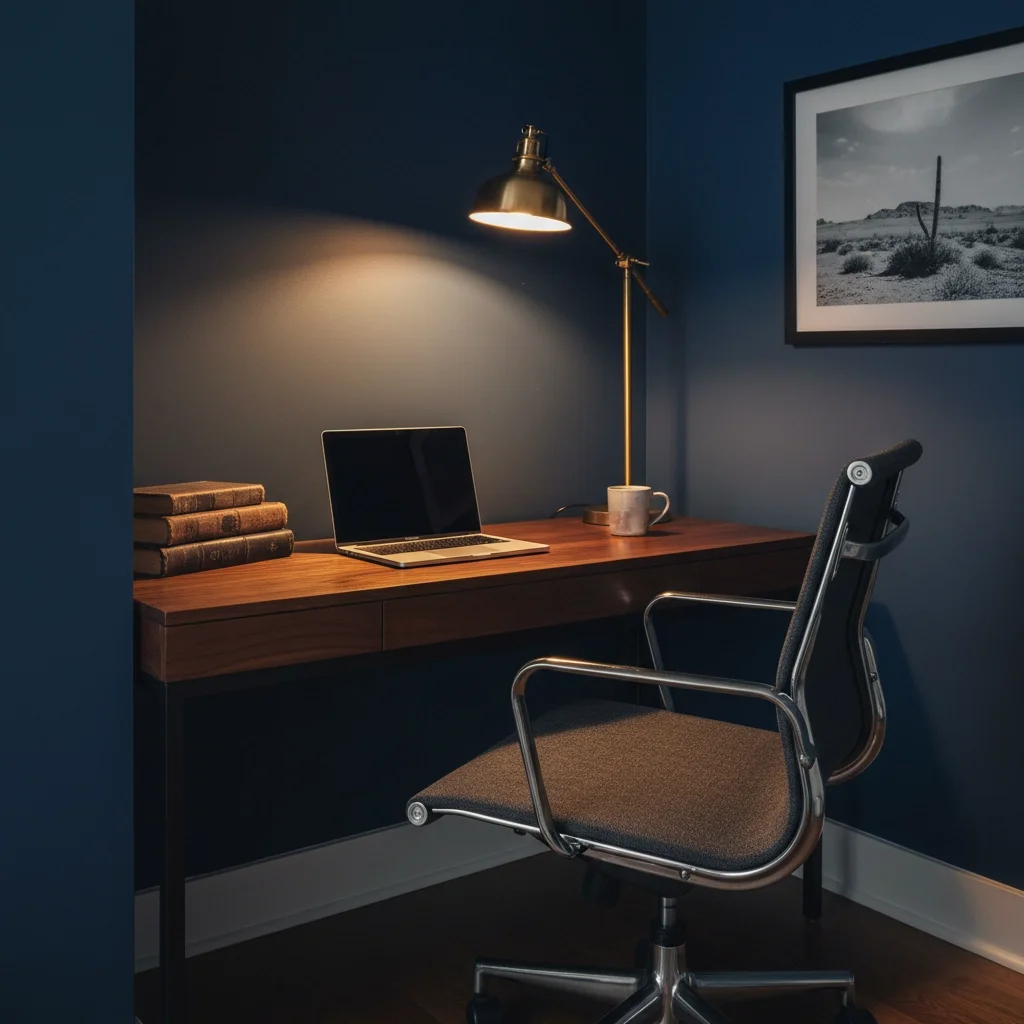Remote Work Killed Your Confidence: 5 Work-Life Balance Coaching Strategies That Actually Work
Let's be honest, remote work promised freedom, but for many of us, it delivered something quite different. Maybe you've found yourself working in pyjamas at 9 PM, scrolling emails during dinner, or feeling like you're always at work but never quite productive enough. If your confidence has taken a hit since trading the office for your kitchen table, you're not alone.
The lines between professional and personal life have blurred beyond recognition, leaving many remote workers feeling scattered, overwhelmed, and frankly, a bit lost. But here's the thing: this isn't your fault, and more importantly, it's entirely fixable.
The strategies that worked in traditional office environments don't translate directly to remote work. We need a fresh approach, one that acknowledges the unique challenges of working from home whilst building systems that actually restore your confidence and sense of control.
Strategy 1: Create Sacred Boundaries (Yes, Even in Your Living Room)
The biggest confidence killer in remote work? The nagging feeling that you're never truly "off." When your bedroom doubles as your boardroom, your brain struggles to switch between work mode and rest mode.
Start with physical boundaries. Even if you're working from a studio flat, designate a specific area, even just a corner, as your workspace. When you're there, you're at work. When you leave, you're done. This isn't about having the perfect home office setup; it's about training your mind to associate specific spaces with specific mindsets.
Then establish temporal boundaries. Set firm start and finish times for your workday, and communicate these clearly to colleagues. Here's where many remote workers go wrong: they think being flexible means being available 24/7. Actually, true flexibility comes from having clear boundaries that you can then choose to adjust when it genuinely serves you.
Try this: Create a simple "commute" ritual. Maybe it's a 10-minute walk around the block to start your day, or changing into work clothes (yes, even at home). At the end of your workday, reverse the ritual. Close the laptop, change clothes, take that walk. These small actions signal to your brain that work has officially ended.
Strategy 2: Build Routines That Actually Serve You
Without the natural structure of office life: the commute, the lunch break, the casual conversations: remote work can feel like an endless, shapeless day. This lack of rhythm often translates into decreased confidence because you lose your sense of progress and accomplishment.
Design a morning routine that energises rather than overwhelms you. Instead of immediately checking emails (which instantly puts you in reactive mode), start with something that feels good. Maybe it's reading for 15 minutes, doing some stretches, or simply making your coffee mindfully. The goal isn't to become a productivity guru overnight; it's to begin each day feeling intentional rather than chaotic.
Create micro-routines throughout your day. These might include a specific playlist for deep work, a regular time for checking messages, or a consistent lunch break away from your screen. These small rituals become anchors that help you feel grounded and in control.
Remember: your routine should feel supportive, not restrictive. If something isn't working, adjust it. The power lies in having some structure, not in following someone else's perfect morning routine.
Strategy 3: Move Your Body, Shift Your Mind
Sitting in the same spot all day doesn't just affect your posture: it impacts your mental clarity and confidence. Physical stagnation often leads to mental stagnation, and suddenly you're questioning your abilities when really, you just need to get your blood flowing.
Schedule movement like you would any important meeting. This doesn't mean training for a marathon. It might be a 5-minute stretch between calls, a walking meeting, or dancing to your favourite song during lunch. The key is consistency, not intensity.
Use movement as a transition tool. Finished a challenging project? Take a victory lap around your garden. About to start a difficult conversation? Do some jumping jacks to shift your energy. Physical movement helps process stress and reset your mental state.
Consider this: when did you last feel most confident? I'd wager you were probably standing tall, breathing deeply, and moving with purpose. You can create this state intentionally through movement, even in small doses throughout your day.
Strategy 4: Cultivate Connection (Without the Awkward Virtual Happy Hours)
One of the biggest confidence drains in remote work is the isolation. Without casual office interactions, we can start to feel disconnected from our colleagues and even doubt our value within the team. The solution isn't necessarily more video calls: it's more intentional connection.
Create informal check-ins that feel natural. Instead of adding another formal meeting to everyone's calendar, try starting your existing meetings with a genuine "How are you doing?" or sharing something you're grateful for. These small moments of humanity can significantly impact how connected and confident you feel.
Build connections beyond your immediate team. Join online communities related to your industry, participate in virtual networking events, or simply reach out to former colleagues for a coffee chat. When you're only interacting with the same few people day after day, your perspective can narrow, and self-doubt can creep in.
Don't underestimate the power of parallel working. Sometimes, just having someone else "there" can boost confidence and productivity. Try virtual co-working sessions with colleagues or friends: you don't have to work on the same thing, just work at the same time.
Strategy 5: Create Accountability That Empowers (Not Overwhelms)
Without a manager nearby or colleagues to bounce ideas off, remote workers often struggle with self-doubt and decision paralysis. The solution isn't more micromanagement: it's better systems for accountability that make you feel supported rather than surveilled.
Use productivity tools as confidence builders, not guilt trips. Apps like Todoist or Notion aren't just for organisation; they're for celebrating progress. When you can see what you've accomplished, it's harder to fall into the "I didn't get anything done today" trap.
Schedule regular check-ins with yourself. Every Friday, spend 15 minutes reviewing what went well, what didn't, and what you want to adjust for next week. This isn't about harsh self-criticism; it's about gentle course-correction and acknowledging your growth.
Find an accountability partner. This could be a colleague, friend, or even a professional coach. The goal is to have someone who can offer perspective when you're too close to your own situation to see clearly.
Celebrate small wins consistently. Remote work can feel like a series of endless tasks without clear completion points. Make completion points for yourself. Finished a project? Acknowledge it. Had a good day? Note it. These small celebrations compound over time and rebuild your confidence systematically.
Your Confidence Comeback Starts Now
Here's what I want you to remember: your confidence didn't disappear because you're working from home: it got buried under poorly designed systems and unrealistic expectations. The strategies above aren't just about work-life balance; they're about reclaiming your sense of agency and competence in this new way of working.
Start small. Pick one strategy that resonates with you and implement it this week. Maybe it's creating that morning routine, or setting up a proper workspace, or simply scheduling a 10-minute walk between your last meeting and dinner.
The goal isn't perfection: it's progress. And progress, even in small doses, is the foundation upon which confidence rebuilds itself.
Your remote work life doesn't have to feel chaotic or confidence-draining. With the right strategies and a bit of patience with yourself, it can actually become a source of empowerment and flexibility that serves your whole life better.
If you're ready to dive deeper into creating a work-life balance that actually works for you, our holistic coaching approach might be exactly what you need. Because your confidence is worth investing in: and it's closer than you think.





